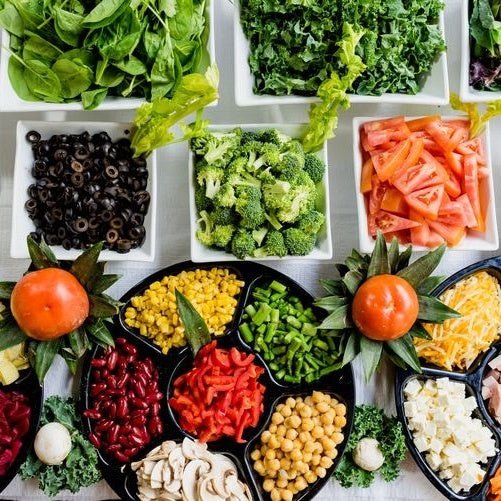Understanding what it means to count your macros.
Macros, the trendy nickname for macronutrients, are the nutrients that our bodies need in large amounts to function properly. Counting macros has become an increasingly popular nutrition strategy in the fitness community. Devotees of the plan believe that by counting your macros, you can target specific body composition or weight loss goals. But is it enough to simply calculate your macros to achieve a healthy diet and fit physique? Let's take a look at some common questions and answers about counting macros.
What are Macros, Anyway?
Protein, carbohydrates, and fat are the primary macros. Our bodies rely on macros to function and flourish. We need macros to provide energy for all of our physical activities (walking and bicycling, for example), as well as for the less obvious activities that happen within our bodies all the time (cell development, cognitive function, and immune system function, for example). There's no doubt that macros are vital to our health and well being.
Should I Count My Macros?
Macros and in particular, counting macros have become the focus of many fitness aficionados. Counting your macros refers to the process of measuring the ratio of protein, carbs, and fat consumed, in order to achieve an ideal balance in conjunction with one's fitness goals. For example, if your goal is to build muscle, you need enough protein to enable that muscle growth. If you train intensely, you need enough carbs to fuel those hard sessions. A diet plan where you calculate your macros can be used to lean down or develop muscle mass, depending on the ratio of macros that work in combination to help you reach your goal.
Is Counting Macros a Healthy Diet Plan?
This is where the controversy around macros kicks in. The importance of macros is easy to understand. But are all macros equally healthy? As long as you count your macros, can you eat anything you want?
Yes, protein, carbs, and fat are all vital to our bodies we need plenty of them. But no, it's not enough to simply count your macros. Counting macros is not a free pass to subsist on junk food, as long as it fits within your macros plan. Theoretically, you could fill up on saturated fats and refined carbs, and avoid high-quality foods like fresh produce, whole grains, and healthy fats, and still stay within your prescribed ratio of macros. Some fans of counting macros like the diet for precisely this reason nothing is off limits. But calculating macros without also paying attention to the quality of the foods you consume could mean you'll miss out on critical vitamins, nutrients, and fiber. Additionally, a diet high in saturated fats and refined carbs can lead to numerous health problems.
What's the Bottom Line on Counting Macros?
Macros are critical, and counting macros can be an effective plan for weight loss, weight gain, or targeted muscle growth. The ratio of macros that you consume depends on your specific fitness goals. For example, a diet plan consisting of 40% protein, 40% carbohydrates, and 20% fat is considered ideal for burning fat and building lean muscle.
The cautionary note in a diet focused on counting macros is that too often, it is used as an excuse to eat anything healthy or not that fits within the plan. It's easy to understand why this can be problematic just consider the difference between a donut and an avocado, foods that both contain plenty of fat. You'd have a hard time making the argument that the nutrition value is equal in these two foods, even though they may score the same when counting macros.
If you do wish to calculate your macros and follow a macros-focused diet plan to achieve weight loss or muscle-building goals, don't toss the tenants of healthy nutrition to the curb. Instead as with any diet plan make sure to get the majority of your macros from nutrient-dense foods. Good sources of macros include whole-grain pasta and bread, potatoes, fresh fruits and vegetables, dairy products, eggs, fish, chicken, lean meats, and nuts. Quality is equally important to quantity, every time.
Want to learn more about healthy weight loss and nutrition plans? Read How to be Healthy While Losing Weight.


Leave a comment
All comments are moderated before being published.
This site is protected by hCaptcha and the hCaptcha Privacy Policy and Terms of Service apply.